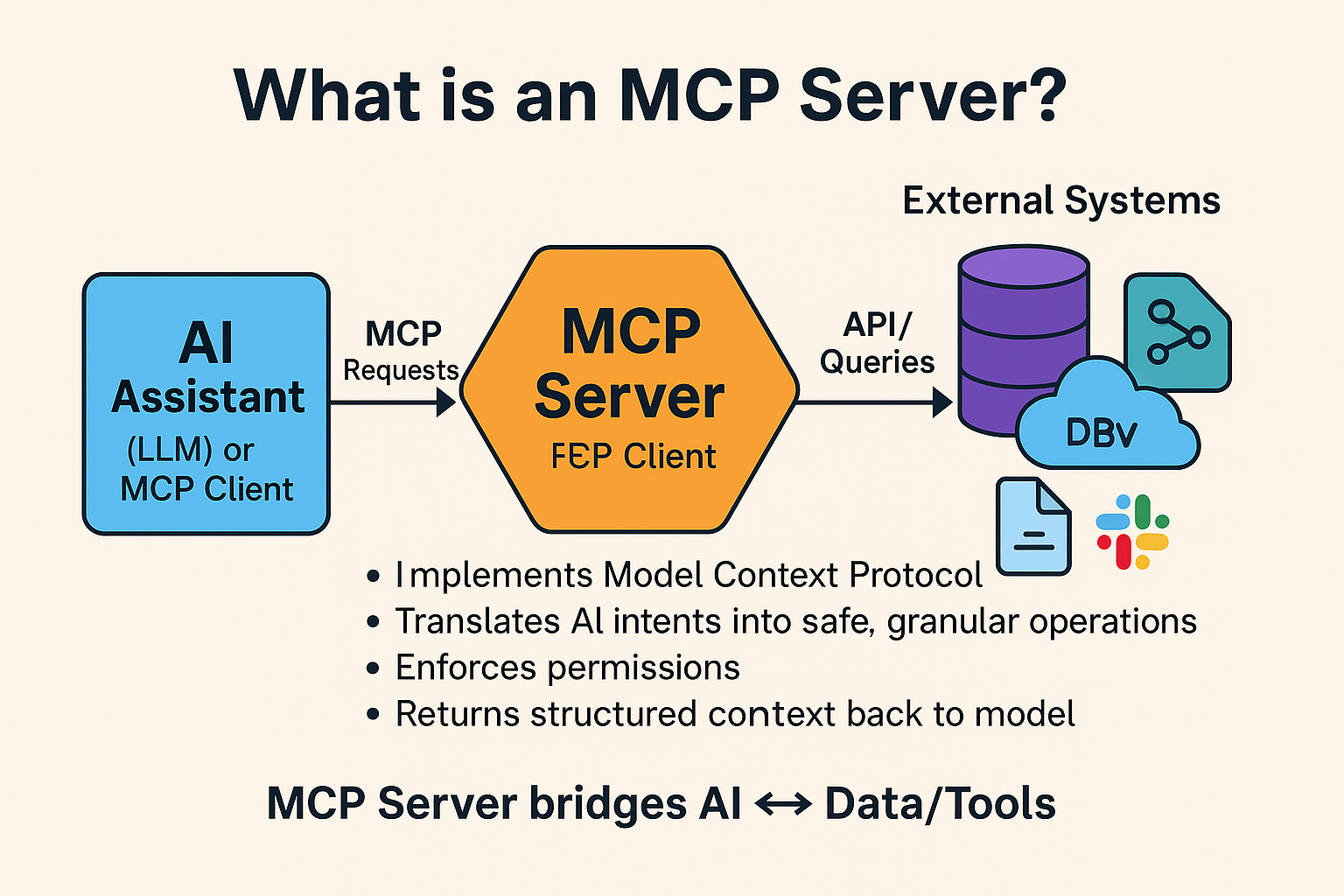
MCP servers leverage advanced components such as structured JSON-RPC 2.0 communication, intelligent request handlers, context-aware session orchestrators, and efficient caching layers. These components collectively enhance the efficiency, scalability, and security of web scraping tasks, allowing AI models to focus purely on data analysis and decision-making rather than on the intricacies of data retrieval. Moreover, MCP servers offer flexible transport methods, including local STDIO integration for rapid, direct communication and remote SSE integration for scalable, cloud-based scraping tasks.
AI-Driven Web Scraping and Data Extraction: How MCP Servers Enhance Integration and Efficiency
What Are MCP Servers and Why Do They Matter for Web Scraping?
Imagine you're building an AI-powered web scraping tool. You want your AI model to seamlessly access databases, APIs, and external resources without complex coding. That's exactly where MCP (Model Context Protocol) servers come into play. MCP servers act as intelligent intermediaries, bridging AI models with external systems, making web scraping and data extraction tasks simpler, faster, and more efficient.
Core Components of MCP Servers for Data Extraction
MCP servers are built around several key components, each optimized to streamline AI-driven web scraping:
Communication Layer:
Uses JSON-RPC 2.0 for reliable, structured messaging.
Ensures stable, error-free communication between your AI scraper and external resources.
Request Handlers:
Interpret and process scraping requests from AI models.
Execute data retrieval tasks, allowing AI to focus purely on analysis and decision-making.
Context Stores and Session Orchestrators:
Maintain context and state across scraping sessions.
Ensure accurate, context-aware data extraction.
Caching Layers:
Store frequently accessed data to speed up scraping tasks.
Reduce redundant requests, improving overall efficiency.
How MCP Servers Improve Web Scraping Efficiency
Web scraping often involves repetitive tasks and frequent data retrieval. MCP servers significantly enhance efficiency by:
- Reducing latency through intelligent caching.
- Automating session management and context handling.
- Allowing AI models to dynamically discover and utilize available scraping tools and resources.
Transport Methods: Choosing the Right Integration for Your Scraping Needs
MCP servers support two primary transport methods:
STDIO (Standard Input/Output):
Ideal for local scraping tasks.
Offers fast, direct communication within the same environment.
SSE (Server-Sent Events):
Designed for remote, cloud-based scraping.
Enables scalable, distributed data extraction (currently in development).
Security Considerations for AI-Driven Data Extraction
Security is paramount in web scraping, especially when handling sensitive data. MCP servers address this by:
- Adhering to the principle of least privilege, requesting minimal necessary access.
- Utilizing ephemeral credentials to minimize security risks.
- Protecting against potential supply chain attacks.
Real-World Examples: MCP Servers in Action
Consider a scenario where your AI model needs to scrape real-time pricing data from multiple e-commerce websites. Instead of manually coding each integration, MCP servers allow your AI to dynamically discover available scraping tools, quickly adapt to new data sources, and efficiently manage scraping sessions. This flexibility dramatically reduces development time and complexity.
Scalability and Future-Proofing Your Web Scraping Infrastructure
One of the greatest advantages of MCP servers is their scalability. As your scraping needs grow, you can easily integrate new tools and resources by simply adding new MCP servers. This modular approach ensures your scraping infrastructure remains adaptable and future-proof, ready to incorporate emerging technologies without extensive reconfiguration.
Quick Comparison: Local vs. Remote MCP Integration for Web Scraping
| Aspect | Local Integration (STDIO) | Remote Integration (SSE) |
|---|---|---|
| Communication Speed | Fast and direct | Dependent on network latency |
| Deployment Environment | Same environment as AI scraper | Cloud-based, distributed environments |
| Use Cases | Local scraping tasks, internal resources | Remote scraping, external APIs, cloud resources |
| Development Status | Fully developed and widely used | In development, expected soon |
MCP Servers: A Game-Changer for AI-Driven Web Scraping
By providing standardized, secure, and efficient integration with external resources, MCP servers significantly enhance AI-driven web scraping and data extraction. They simplify complex integrations, improve performance, and ensure scalability, making them an essential component of modern AI scraping ecosystems.
Conclusion: Leveraging MCP Servers for Effective Data Extraction
In conclusion, MCP servers represent a significant advancement in the field of AI-driven web scraping and data extraction. By providing standardized, secure, and efficient integration with external resources, MCP servers simplify complex scraping tasks, reduce latency, and enhance overall performance. Their intelligent architecture, including structured communication protocols, context-aware session management, and dynamic resource discovery, allows AI models to efficiently handle diverse and evolving data extraction scenarios.
Furthermore, MCP servers offer robust security measures, adhering to the principle of least privilege and utilizing ephemeral credentials to minimize risks. Their modular and scalable design ensures that web scraping infrastructures remain adaptable and future-proof, capable of seamlessly integrating emerging technologies and expanding scraping needs. Whether performing local scraping tasks or managing distributed, cloud-based data extraction, MCP servers provide the flexibility and efficiency required to stay competitive in today's rapidly evolving digital landscape.
Ultimately, adopting MCP servers can significantly streamline your web scraping processes, enabling your AI models to focus on insightful analysis and strategic decision-making, rather than on the complexities of data retrieval. As web scraping continues to grow in importance, MCP servers will undoubtedly play a pivotal role in shaping the future of efficient, secure, and scalable data extraction.